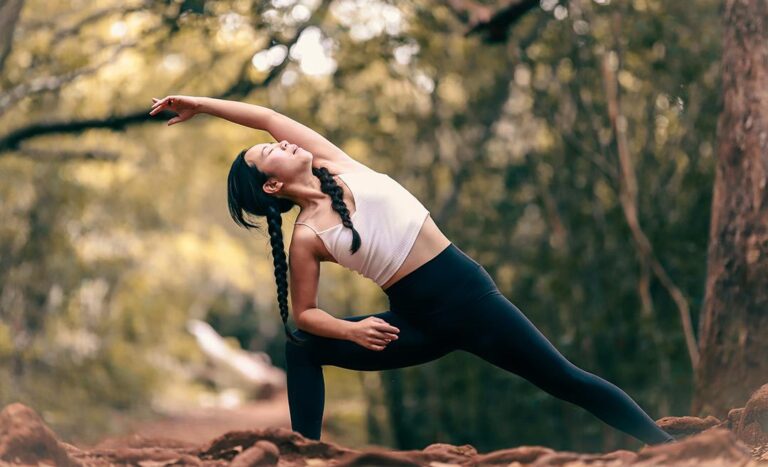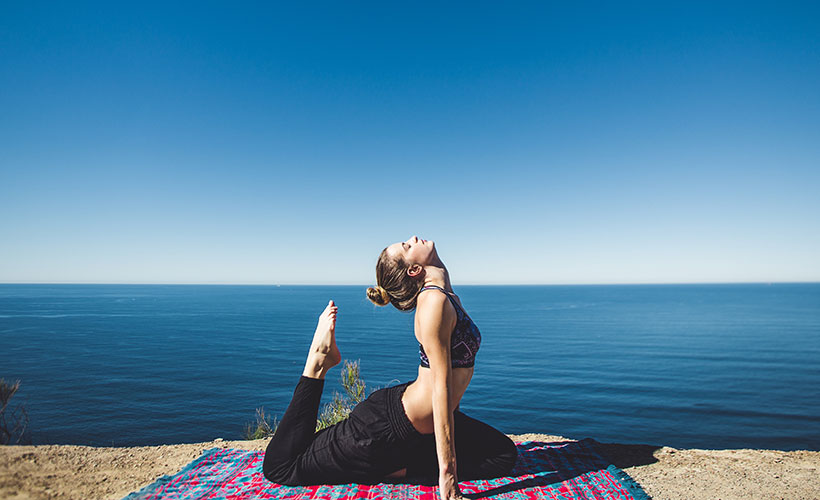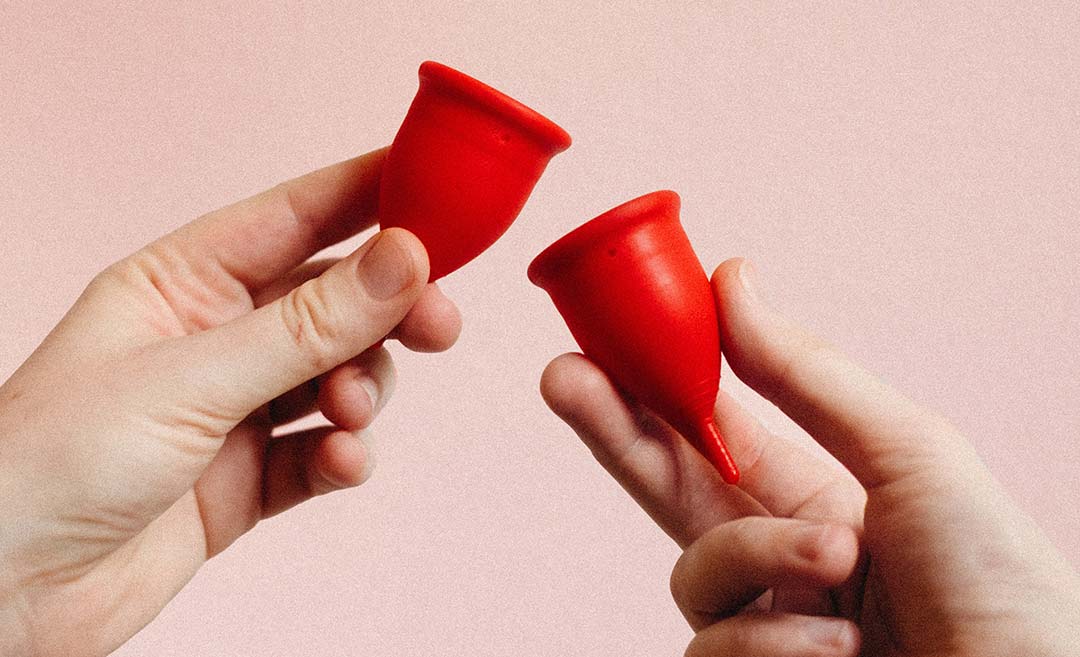For the longest time, I’ve struggled to keep up with my energy levels. Although I had a hunch they were linked to my menstrual cycle, not much thought was put into actually plotting it all out. Up until then, I was using a mobile app to track only when my periods began.
Working my life plans around my menstrual cycles have been a grounding self-awareness practice for me. The game changer that set in motion this mindfulness practice was when I started to inculcate my menstrual cycle phases into my planner. Now, you don’t have to do the same thing I’ve done; there are other ways to track your cycle.
But we’ve first got to understand what happens in our bodies before we can make adjustments.
Fluctuations are normal

Mood and energy level changes are very normal throughout a menstrual cycle, and if you already know the best self-care for you during your periods, you’ll easily manage around your menstrual cycles too.
Your workout routines, social plans, and travel itinerary can change to accommodate what your body is up for instead of working against yourself! Do also keep in mind that moods and energy levels can be affected by factors like stress and diet, so be kind to yourself.
Right phase at the right time
The menstrual cycle typically lasts 28 days for the average person. However, all bodies are different, and cycles may vary between 25 to 40 days. Each menstrual cycle starts on the first day of your period and ends the day before your next period begins.
You can use fertility or period tracker apps to help keep track of your cycles. Your cycles may not always be the same or on time, but you’ll begin to understand how your body works over time. These apps commonly have the option to note down changes in your mood and energy levels too, which can be helpful!
Planning your activities around your menstruation is called ‘Cycle Syncing‘. Remember that it may take a few cycles to understand your body and to take it baby step by baby step.
Day 1 to 7: The menstruation phase, your inner winter

A menstrual cycle starts on the first day of your period, when oestrogen is at its lowest, which means your energy levels will be low, especially for the first few days. Feeling physically and mentally sluggish during this period is normal, so don’t hold off getting rest, especially when your body calls for it. You ARE bleeding, after all.
Try to keep your plans spread out, and reschedule appointments if you have to. Take naps or rest your mind between tasks, and practice self-care routines that are healing for you. Get adequate sleep at night so your body can get the rest it needs.
Recommended exercises: Light workouts and low-impact movements like yoga, walking around the park, stretches, and Pilates are better during this time — try not to overwork your body.
Recommended travel activities: Lounge by the beach or pool, read, chill at a cafe, or take light walks around town.
Day 8 to 14: The follicular phase, your inner spring

The follicular phase actually starts on day one of your cycle, up until day 14. While you’re bleeding your insides out, your oestrogen levels are also steadily increasing, so you’ll find that towards the middle or end of your period, your energy starts returning. During this phase, your high energy levels make it a great time to tick things off your to-do list.
Recommended exercises: You’ll have the energy to complete regular exercise routines, especially cardio workouts and endurance training. Going for hikes and doing strength training may give you that feel-good energy.
Recommended travel activities: Choose activities that require more energy, such as hiking, skiing, visiting theme parks, trying water activities, and joining walking tours.
Day 15 to 21: The ovulation phase, your inner summer

During ovulation, your hormone levels are at an all-time high. Although the ovulation process may last only about 24 hours, the hormone levels in your body may remain high for about three to four days before and after the ovulation day. Ovulation day typically occurs on day 14 of a 28-day menstrual cycle, so you may feel more energetic than usual before and after this day.
The increase in hormone levels will give you more social energy during this period, so it’s the optimal time for socialising and tasks that require collaboration. If you have tasks that need more brain power, this is the perfect time to do them too.
Recommended exercises: You may feel that hardcore workouts like spin classes and HIIT (High-Intensity Interval Training) are more achievable during this time. Some folks experience pain and discomfort during ovulation; take it easy if so.
Recommended travel activities: Take advantage of your sociable self these few days and tackle activities that require interacting with others, like group cycling tours and cooking or craft workshops.
Day 22 to 28: The luteal phase, your inner autumn

This is when you’ll start experiencing symptoms of PMS (premenstrual syndrome). You’ll start feeling low energy with days of sharp dips as your hormone levels decrease rapidly. Try to consume complex carbohydrates, quality proteins, and vegetables to keep your energy levels stable. Caffeine and alcohol can worsen PMS symptoms, so drink in moderation and remember to keep hydrated.
Lower progesterone levels will also screw up your sleep, so rest when you need to. Take things slower as your period nears, and prioritise self-care routines. Complete tasks that are repetitive or don’t require brain juice.
Recommended exercises: Due to the fluctuating hormone levels, you’ll likely take longer than usual to recover from intense workouts. Aches and mood swings from PMS may make certain exercises uncomfortable and hard to push through. Focus on workouts that make you feel good and grounded, like walks in the park or slow and gentle yoga. You could go for your usual intense workouts but give yourself time to recover and listen to your body. It’s crucial that you feel good and not stressed or tired!
Recommended travel activities: This is the best time to bring on self-care for the mind and body through things like spa visits, light shopping, discovery food tours, or exploring the town markets, galleries, and museums.
Take your time to understand the seasons
Recognising how your body responds to each phase may take a few cycles, but your perseverance will pay off. Making notes of how you feel throughout your cycle will help you identify not just your physical energy, but your mental capacities and social energy throughout each phase too.
Most importantly, be kind and respond to your body’s needs.
Note: This article is not a substitute for professional medical advice. If you’re ever in doubt, see your local general practitioner or a gynaecologist.
Editor’s note: This article was originally published on 21 July 2023 and has been updated to include more information.




